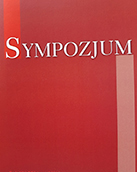Formacja w świetle Kodeksu Prawa Kanonicznego (1983)
Formation in the light of Codex Iuris Canonici (1983)
Author(s): Marek StokłosaSubject(s): Christian Theology and Religion, Law, Constitution, Jurisprudence, Theology and Religion, Canon Law / Church Law
Published by: Wyższe Seminarium Misyjne Księży Sercanów
Keywords: formation;Codex Iuris Canonici (1983);
Summary/Abstract: The main stages of a religious formation are: a postulate, a novitiate, a period of time after the temporal vows and after the perpetual vows until death. All stages are equally important. The formation of members of Religious Orders preparing to receive Holy Orders also is specific. The first stage of initial formation is a postulate. It take its course under the proper law of a Institute. The novitiate is a period of a more intense formation. Its rules are strictly regulated by common law. If after a period of novitiate a competent superior recognizes a novice as suitable for, and he himself wishes to continue his life at the institute, he is admitted to temporal profession. Perpetual vows may be made no earlier than after three years of temporal vows. Usually, after the novitiate and temporal profession the candidates continue their formation in preparation to the Holy Orders including the completion of philosophical and theological studies, while others professed held their initial formation in accordance with the guidelines of the proper law of their own Institute. This period of formation in different institutes have common features as well as differences, arising from the charisms of specific congregations and religious orders. Differences also arise from the types of institutes (female, male, clerical, secular). At the time of perpetual profession, the formation of a religious does not end... After perpetual vows begins ongoing formation that lasts... until death. The Ongoing Formation is the way of the whole life, of both personal and communal. During this time personal qualities, evangelical witness and strengthening in the vocation shall be the subject of a continued development, according to the charism and mission of ones own Institute.
Journal: Sympozjum
- Issue Year: 26/2014
- Issue No: 1
- Page Range: 133-147
- Page Count: 15
- Language: English, Polish

